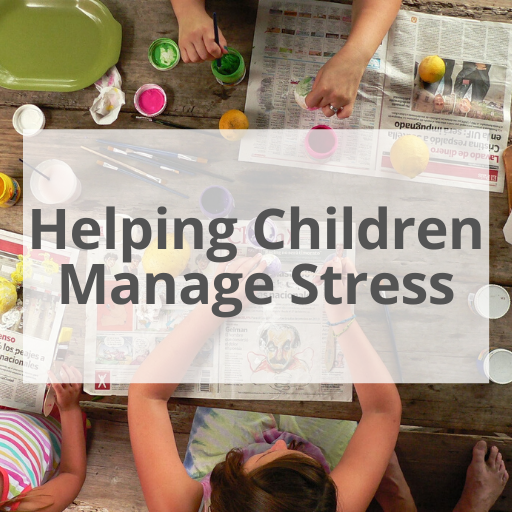23rd Apr 2020
Helping Children Manage Stress: Top Tips

Children are not immune to the effects of stress, but there are ways you can help them manage these feelings.
Throughout our lives, we will often encounter stressful times, which is very normal. Learning to cope with this early on can equip children with the tools to manage later in life. Here, we share some helpful tips to assist in building up your child’s stress management ‘toolkit’.
Talking
It’s always important to encourage children to talk about how they are feeling, but it is especially important during difficult times. There are many ways you can put your child at ease when discussing their emotions, for example, make sure you get down to their level or lower, and ensure you give them your full attention. Additionally, refrain from assuming what your child is feeling, and instead take the time to truly listen and respect their emotions. For more tips on how to talk to your child about their feelings in the most effective way, check out our previous blog.
Routine
Maintaining a routine can be reassuring for children during times of stress or change. Routine can be as simple as meals being at the same time each day, or more complex if your child would benefit from this. For older children, you may find value in creating a schedule alongside your child as a way of exercising their ability to take responsibility for themselves. However, it’s important to remember that having routine doesn’t have to be boring or rigid – remember to include fun and relaxation.
Self-Care
Encourage your child to care for their own wellbeing, and follow suit by displaying how you also practice self-care. There are lots of ways you could go about doing this, depending on the situation and specific needs of your child. You may take half an hour in the day to do some quieter activities like colouring, reading or child-friendly yoga. Additionally, take time to practice self-care on a basic level – through eating a balanced diet, maintaining good hygiene and enjoying daily exercise.
Play
Allowing your child to act like a child is vital to maintaining their wellbeing – and it can also do wonders for your own wellbeing. Find time each day to do something nice together, such as playing a game, watching a film or enjoying an outdoor activity. Children are also often very happy to sit alone and play, so don’t place pressure on yourself to continually engage in complicated fun family activities.
These tips are designed to give you some ideas of how you may help your child cope with stress during difficult times. However, naturally each child is unique, and what may be helpful for one may not be for another.

